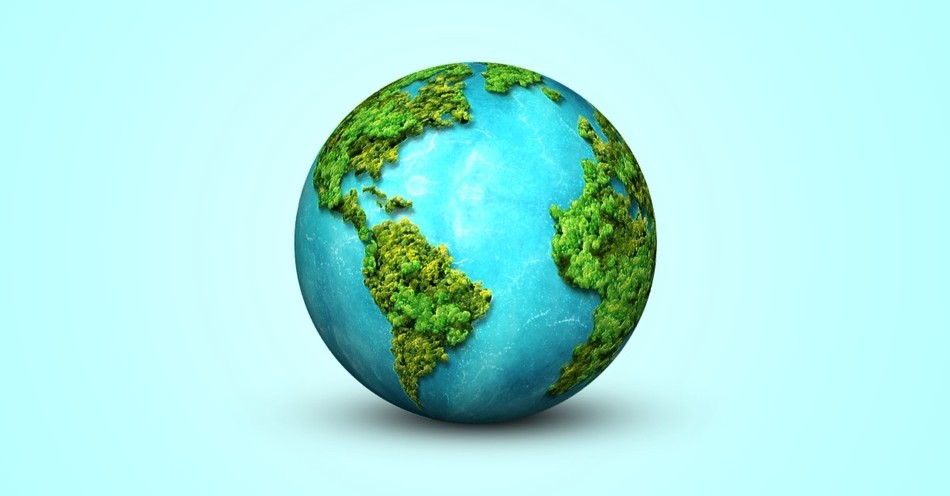Another Earth Day has passed and Whole Foods shoppers and Hollywood celebrities continue to bask in its fading glow. Earth Day was brought to life over a period of time during the 1960’s through the efforts of various politicians, radicals, celebrities, and scientists. It was first observed in its present form on April 22, 1970, and has continued on ever since.
I must admit that I get downright suspicious when politicians begin talking about the environment because it always ends in government owning more property and confiscating a larger percentage of my paycheck. However, there is a greater problem with much of the modern environmental movement. It brings together what seems at first an odd mix of naturalistic materialists and honest-to-goodness pagans; of scientists warning us of impending doom and worshippers of the Earth goddess, Gaia.
The solution to this sort of confusion is not to deny humanity’s responsibility to properly care for the planet. Rather, the solution to the errors is to make the truth clear. And, since God’s Word is the standard for truth, it makes sense to take from it our ideas about the earth and our relationship to it.
1. God is the maker and sustainer of all things.
The Bible teaches that God created, by fiat, all things out of nothing. What is more, other passages in Scripture make it clear that this work of creation was the doing of the God who is Father, Son, and Spirit (Gen 1:1-19; Jn 1:1-3; Col. 1:16-17). The Creator is not the watchmaker of the deists but the One who does actively uphold and sustain all things. Further, the created order is not an extension of the Creator. God is distinct from and over all things He has made.
2. The created order is very good.
Upon reviewing the work of creation, God declared that it was “very good” (Gen 1:31). Even in its fallen state, the creation is very good. It is good because it is the work of a good God. The creation is good also because it testifies to its Creator. The Psalmist is able cry out that the heavens are telling of the glory of God (Ps 19:1). The Apostle Paul declares in Romans 1 that the creation gives enough evidence of the Creator that the unbelieving are without excuse.
3. Humans were created to be both stewards and consumers of the creation.
Humans are not unwelcome intruders into the created order. They are the pinnacle of God’s creative activity. Only mankind bears the image of God (Gen 1:27). Two things Scripture makes clear about mankind’s God-given relation to the rest of the planet are: 1) God placed man in the garden to tend it, and 2) God gave the plants and animals to be used and consumed by his human creatures. The earth is to be tended by faithful stewards, not destroyed by crass materialists. At the same time, by God’s design, plant and animal life is to be used for the care and nurture of his human creatures (Gen 1:28-29; 2:15; 9:1-3).
4. Humans Pollute (and it’s not all bad)
All living things have an impact upon the earth. Both humans and screaming spider monkeys leave their mark upon the planet. Some would have us believe that any mark of human presence upon the earth is necessarily polluting. And I suppose to a certain extent that is true. Indeed, every living creature on the planet creates and/or becomes waste products. The idea of a pristine planet is simply nonsense.
It is clear from the creation account that God did not design the world to be a place absent of any evidence of human occupation. Just the opposite in fact. Certainly, we ought not be foolish or cavalier in our use of planetary resources. We ought not trash the very home in which we live. We understand this in our own households. One of the first things a child learns at home is that there is a proper place for trash.
There are times when we have not dealt well with the trash we produce. Sometimes we have been downright destructive. Certain parts of the earth bear the mark of humanity’s foolishness in this regard. This most certainly is bad. In fact, for stewards to treat poorly the property they are called to care for is sin. Sin has tarnished everything in God’s good creation. The fall of man was so profound that it left nothing on the earth untouched. We are told that the whole creation groans under the weight of it all (Rom 8:21-22).
5. The created order has a purpose beyond itself.
The cosmos has a purpose. It is moving toward an appointed goal designed by the Creator. Cosmic history is linear, moving from Creation to Corruption to Redemption and culminating in New Creation. Jesus Christ came to save sinners through is death and resurrection. And it is the resurrection of the Lord Jesus which holds the guarantee that one day not only will all of his people be raised incorruptible but so too will a new heaven and a new earth (Isa 65:17; 1 Cor 15; 2 Pet 3:13; Rev 21:1). In this we see that the entire created order exists ultimately to give praise to God who is not only the Creator, but through Jesus Christ is also the Redeemer.
Todd Pruitt serves as Lead Pastor of Covenant Presbyterian Church in Harrisonburg, Virginia. Raised a Southern Baptist, he is a graduate of Midwestern Baptist Theological Seminary in Kansas City. He blogs regularly at Ref21and 1517. Todd, along with Carl Trueman and Aimee Byrd, is one of the hosts of Mortification of Spin. He and his wife Karen have three children.
Photo Credit: Getty Images/DOERS



